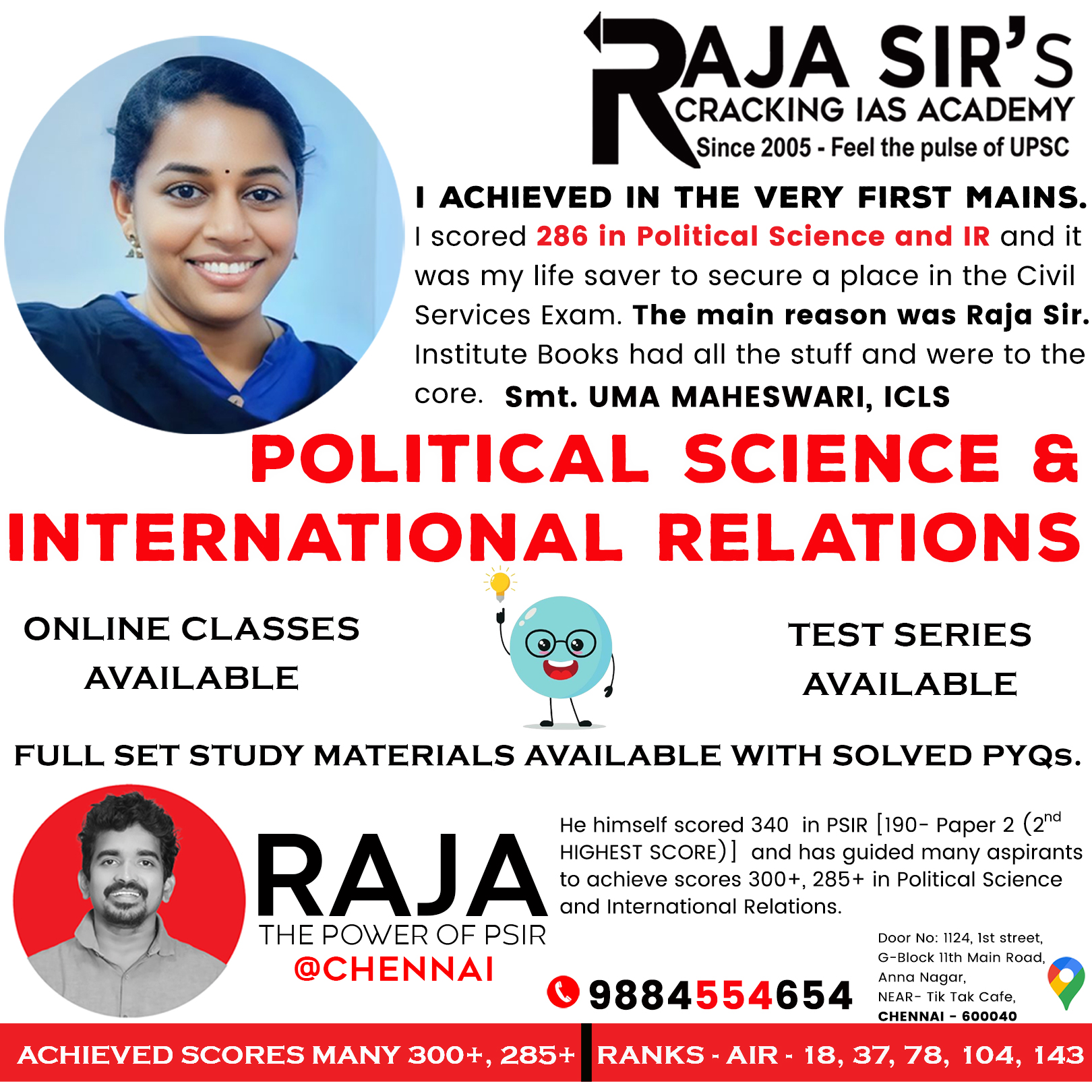- Home
- Prelims
- Mains
- Current Affairs
- Study Materials
- Test Series
 EDITORIALS & ARTICLES
EDITORIALS & ARTICLES
Critically examine Plato’s theory of Forms. (15m) (UPSC CSE Mains 2024- Political Science and International Relations, Paper 1)
- Plato’s Theory of Forms explains the nature of reality. For example, every circle we can see in our world is either broken, distorted or in a way not “a perfect circle.” (i.e.) a perfect geometrical circle would need to be drawn with a line that does not have any thickness, and so would be invisible.
- There are two worlds, Plato says: the world of physical objects and the world of Forms. Plato believed that the physical world was only a shadow or imitation of the real world of Forms. Plato believed that the Forms are the ultimate source of knowledge and truth. The physical world is constantly changing and imperfect, but the Forms are unchanging and perfect. Therefore, knowledge of the Forms is more certain and reliable than knowledge of the physical world.
- In his Allegory of the Cave, Plato describes a group of people who have been chained in a cave since birth and can only see shadows of objects on the opposite cave wall. The real objects are held into the light behind them, but since they are chained, they cannot turn their heads. So, the only thing they can see are the shadows. The people out of the cave represents the journey of the philosopher out of ignorance and into knowledge.
- Throughout the Republic, Plato emphasises the importance of having rulers who know the form of good. Plato holds that a philosopher by his grasp of the idea of good was best qualified to rule, implying that knowledge could be obtained only by a select few who had the leisure and the material comforts. Plato shared the general Greek perception that leisure was essential for the pursuit of wisdom. A philosopher would be able to administer justice and act for the good of the community. He would have a good character, a calm disposition and a sound mind. He would have the qualities of a ruler namely truthfulness, high mindedness, discipline and courage. Plato in The Republic insisted that politics and philosophy ought to be safe from one another. A philosopher ruler would make wise legislator and frame laws in accordance with the Idea of Good, thereby linking statecraft with soul craft.
GET OUR POLITICAL SCIENCE STUDY MATERIALS @ https://crackingiasbooks.com/product/political-science-full-set-6-volumes/










 Latest News
Latest News General Studies
General Studies